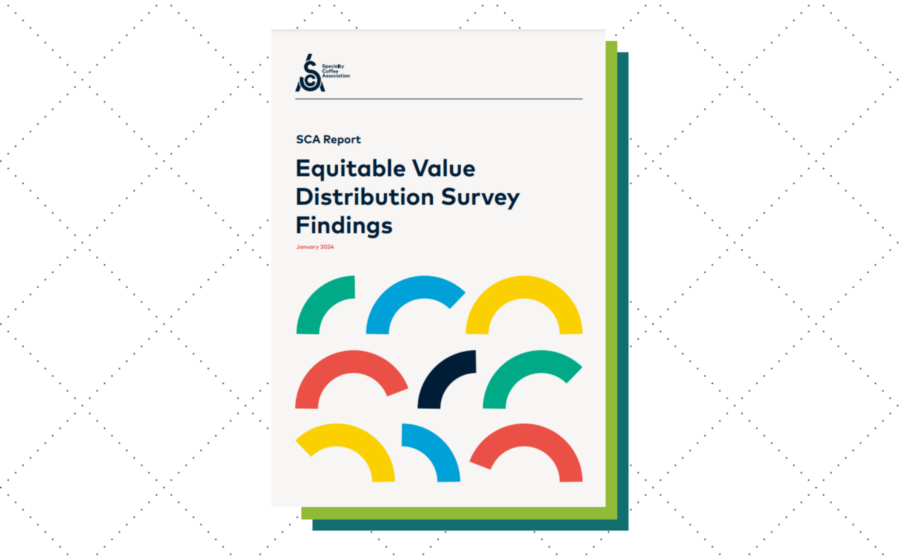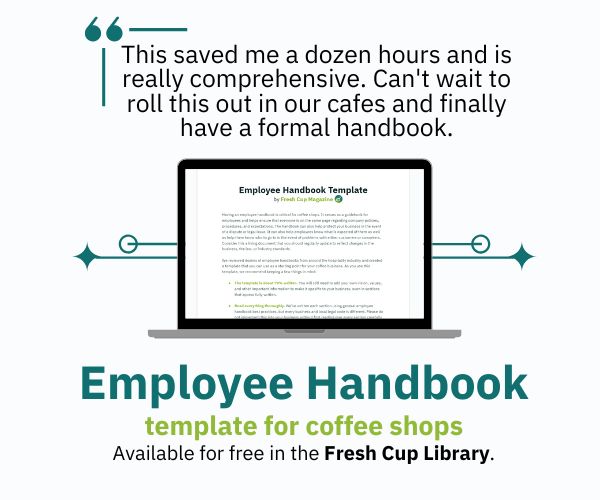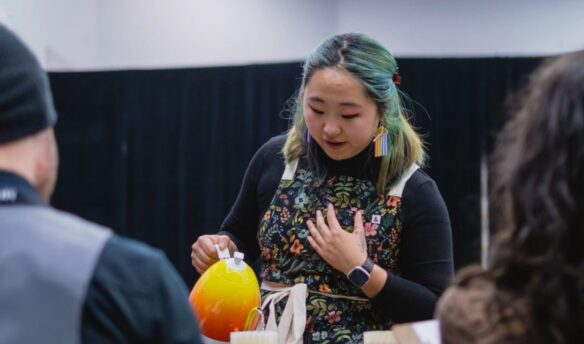Last April, the Specialty Coffee Association (SCA) surveyed people working across the supply stream about value: how value is created, what actors capture the most value in coffee, and whether they believed the value system should be changed.
Now, the survey findings are here in a report released by the SCA called the “Equitable Value Distribution Survey Findings.” The SCA says the survey marks “a significant milestone in the effort to shape mindsets and business behaviors in order to foster equitable value distribution as a sustainability tool for the specialty coffee sector.”
The report draws from the 406 surveys collected from respondents, along with insights from 16 farmers in Guatemala who participated in a focus group conducted in partnership with the SCA and ANACAFÉ. We read through the report, and here’s what we think are the most important takeaways:
Value in the Coffee Industry is Distributed Unequally: In 2018, the Specialty Coffee Association (SCA) launched the Coffee Price Crisis Response Initiative (PCR) to address a longstanding truth about coffee: prices are so volatile, often dipping below the cost required to produce coffee, that farmers’ livelihoods are constantly under threat.
One of the major takeaways from the PCR was that pricing fluctuations and dips aren’t the result of a singular event but indicate that the industry needs to think about sustainability differently, which is where the importance of value distribution stemmed from. In 2019, the SCA “published a Summary of Work that proposed a new role for specialty coffee in sustainability: to support the industry in distributing the value generated by all the contributors to specialty coffee equitably among them.”
Findings indicate that the majority of respondents believe that value should be distributed differently than it currently is.
SCA VALUE Distribution report
It’s one thing for the SCA to recognize the importance of value distribution, but how does the industry feel? It turns out that most people agree that value is distributed unequally: “Findings indicate that the majority of respondents believe that value should be distributed differently than it currently is,” the report stated. “Many also believe supply-side actors—especially producers—receive a proportionally low share of coffee’s total value in comparison to the value they create.”
The report found that most respondents know that value is unequally distributed, monetary or otherwise, with producers receiving a disproportionate amount of coffee’s value relative to the value they produce.
Or, as the SCA summarized, “Respondents believe that more value is created by actors upstream (closer to and including producers), while more value is distributed to actors downstream.”
The Survey Results Might Seem Obvious, But Discussion of Value Distribution Inequities Still an Issue: The SCA report notes that studies and statistics back up the perceived imbalance of value distribution.
In 2020, the Coffee Barometer talked directly about value distribution: They reported that green coffee exports capture less than 10% “of the US$200 to US$250 billion of revenues generated in the coffee retail market.”
The SCA report included these findings from the Coffee Barometer and reporting from the International Coffee Organization, indicating that producers’ value share has been systematically decreasing. “The decrease in the share of coffee value received by these farming families over the past 30 years, combined with inflation and cost of living increases, suggests that not only is the coffee industry not progressing toward improving their livelihoods, but in fact, we are regressing.”
So, it might seem that the SCA is asking an obvious question about value distribution, especially since the data back up respondents’ perceptions. However, the report points out that we should examine just how prominently these findings are understood (or discussed).
The decrease in the share of coffee value received by these farming families over the past 30 years, combined with inflation and cost of living increases, suggests that not only is the coffee industry not progressing toward improving their livelihoods, but in fact, we are regressing. SCA VALUE Distribution report
“Most respondents (76%) reported moderate to significant familiarity” with “the concept of equitable value distribution,” the report reads. However, the SCA warns that this survey had fewer respondents than past queries. For example, “the SCA survey on cupping from 2020 garnered more than 1500” responses compared to 406 from the value distribution survey. Furthermore, not every respondent filled out the questionnaire in its entirety, meaning we don’t have 406 responses to every question.
This finding could be interpreted in a few ways, from a lack of awareness to a lack of regard for value distribution. The SCA concludes that despite many respondents reporting awareness of equitable value issues, “the topic is still on the fringe of mainstream sustainability conversations.”
Producers Want More Market Diversification, Information, and Risk Sharing: The survey also included a focus group with 16 producers in Guatemala. Generally, the group agreed value distribution was inequitable and identified four ways value could be better distributed:
“a. Market diversification and local consumption.
b. Farm profitability and value creation (on and off farm).
c. Access to information about coffee quality and market trends.
d. Risk sharing and supply chain transparency.”
The focus agreed that “the industry would benefit from involving farmers in generating solutions” to issues affecting the coffee industry and the importance of transparency and access to knowledge. They also indicated that they “believed that consumers were more interested in equitable value distribution than the actors closest to them (exporters, importers, and roasters).”
This section of the report included a lot of direct quotes from producers, including:
- “[when we talk about] the problems of the coffee industry, in reality we are talking about the problems of coffee producers.”
- “We need [cost and profitability] information to make conversations transparent… this will also help us explore options for accessing financing that is limited and restrictive.”
- “with clear data and information, we can consolidate a stronger position as a producing community, producing regions, and producers [worldwide].”
Goals and Action Steps Need to Come Together: The second-to-last question of the survey asked respondents, “What percentage of value should coffee producers and producing regions receive by 2030?” Although answers ranged from 8% to 100%, the average settled around 38%.
We need [cost and profitability] information to make conversations transparent… this will also help us explore options for accessing financing that is limited and restrictive. a farmer surveyed for the sca value Distribution report
The survey also asked respondents, “What do you think would happen in order for our coffee sector to “distribute value generated more equitably?” While the SCA didn’t report any trends or themes generated from the “answers, their report does seem to imply that one-to-one monetary solutions (simply paying farmers more) aren’t enough.
“While farmer income is a critical factor to consider in every coffee value chain individually, as well as the industry collectively, quadrupling the C market price is not a simple solution to the complex equitable value distribution equation.”
Instead, the industry needs a “mindset shift” and points to alternative models and tools for value distribution, like cooperative coffee companies, forward contracting, and profit sharing. “Businesses that share value intentionally, using inclusive business and sourcing models, can create value and innovate while supporting all supply chain actors.”
The report asserts that the survey serves as a foundation for future work and that “understanding the current thinking of the specialty coffee industry is a necessary first step to evolving business models and trading systems in an inclusive way.”
What Next: While we analyzed the findings of the survey, we were slightly unclear on its intent and impact and we wanted more context. We asked Kosta Kallivrousis, US sales manager for Algrano, an online platform that connects coffee producers directly with roasters, for his takeaways.
“I think for me, it’s an incredible report,” he says. “Specifically these two points: people want that much more value being kept by producers, and the acknowledgment that things aren’t getting better, but worse. To me, it’s an institutional confession that the majority of coffee actors want significantly more value being retained by coffee producers, and even though specialty has exploded as a multi billion dollar industry, overall coffee producers’ livelihoods are not improving.”
While it’s important to recognize inequities in value distribution, Kallivrousis notes that the report does not talk about how value inequalities continue and are exacerbated. “What’s glaring to me is the absence of how politics impact value distribution,” he says. “When we speak of economics we are talking about a type of political arrangement between people. And right now it has actively benefitted actors in the global north for the last 30+ years.”
“If we want change,” he says, “we must engage politics as well—whether representative politics or grassroots direct action politics—because the reality is we already are.”















